How CRSSD Festival is using synths to transform electronic music fans into producers
In San Diego, California, festival-goers get hands on with synths, samplers, vinyl and DJ mixers at The Lab, learning music production from the masters
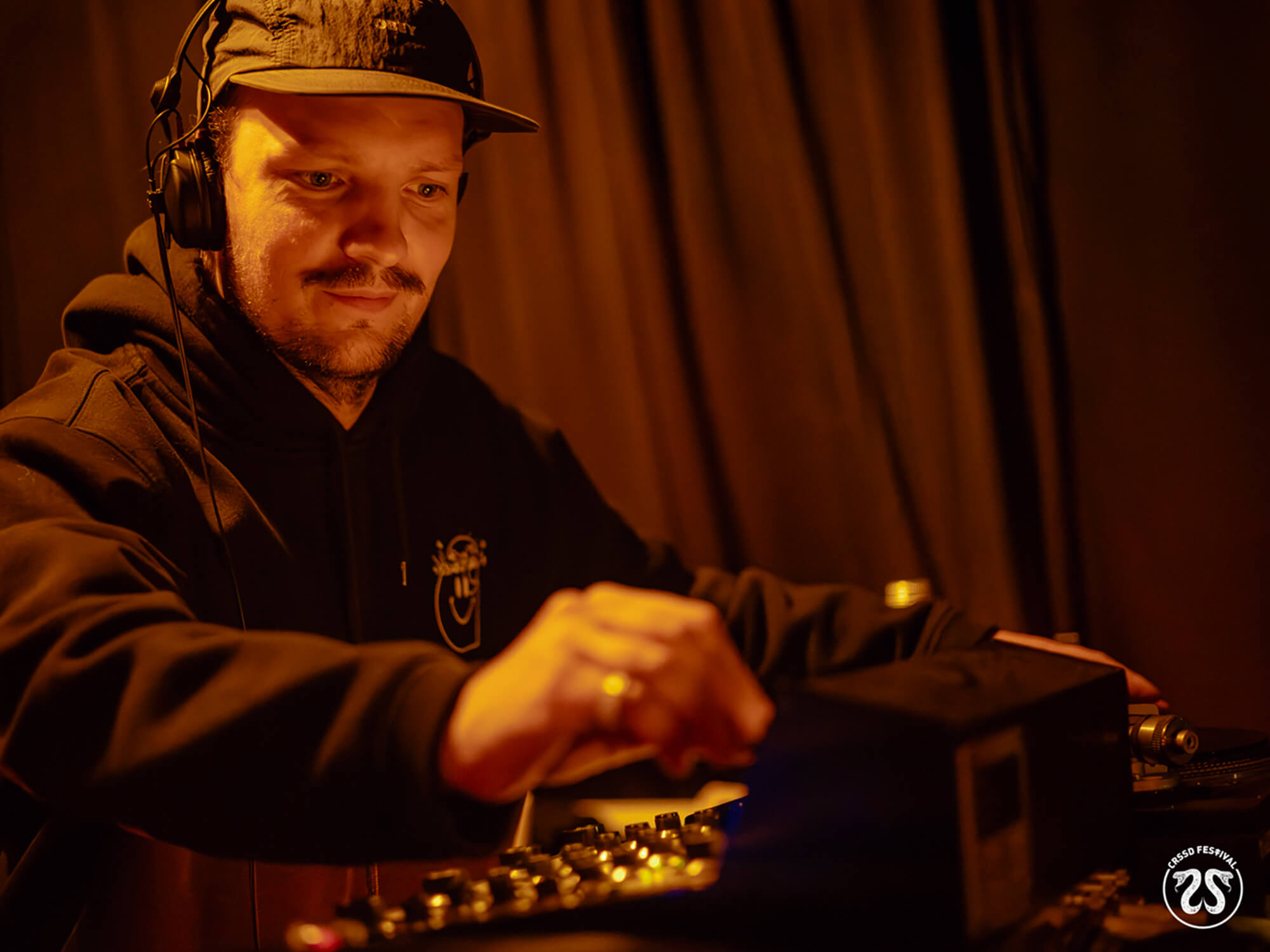
DJ spinning vinyl at Chapter One Records’ booth at the CRSSD Festival. Image: Izzy Hassan
It’s a story as old as the rave: A fan is on the dancefloor having one of the best nights of their life. Soon comes the transcendent moment where that track erupts through the loudspeakers and, in that moment, the fan decides to pursue a dream of being a professional artist.
For fans who find themselves in that experience at CRSSD – the celebrated San Diego electronic music festival that’s just held its 16th edition – they can begin their story in immediate fashion at the CRSSD Lab.
The CRSSD Lab is the festival’s on-site activation produced in partnership with Roland and other respected forces in electronic music. It provides attendees opportunities to try synths, samplers and software, and engage with the craft that brought them to CRSSD in the first place.
The Lab has been present at CRSSD in different forms since the festival’s inception. It’s offered a variety of different seminars and activities including Q&As with artists – like the instrumental house performer Life On Planets – workshops on sampling and drum production in Ableton Live, and tech demonstrations using the newest machines from Roland.
“Roland sees CRSSD as an education medium that allows lovers of electronic music to familiarise themselves with the technology and instrumentation behind the music,” says Mar Keith Anthony, Roland’s global brand relations manager, speaking to MusicTech via Zoom.
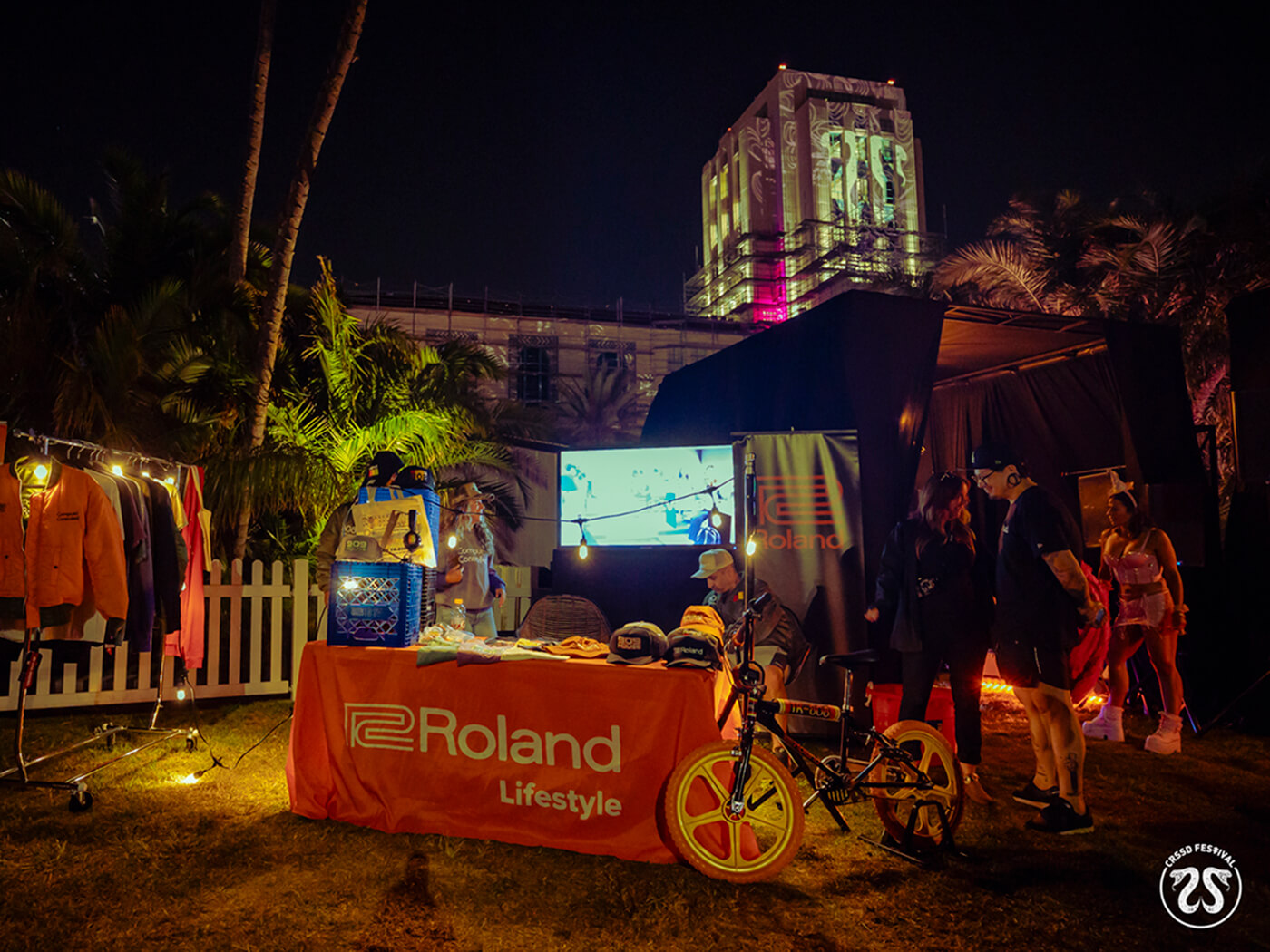
As a world leader in music gear, Roland has maintained a global presence at various live events for decades. This includes trade shows such as The NAMM (National Association of Music Merchants) Show in Anaheim, California, Superbooth in Berlin, Gearfest in the UK, and the Tribeca Film Festival in New York City.
But when it comes to music festivals like CRSSD, Roland is more of a newbie. Over the years, the brand has been invited to produce activations similar to the CRSSD Lab at various festivals including Coachella and Rolling Loud, but it’s kept CRSSD as a primary focus, being involved since 2018.
“CRSSD is an event that allows lovers of electronic music something to look forward to,” Anthony says. “To see the reactions on their faces after they get that introduction – ‘What is this machine? What does it do? How do I use it?’ Once they get past that point and get directly into the creativity piece of it, they believe they can do it. They believe that they can be a producer.”
This year, Roland brought an SH-4d desktop synthesizer, an SP-404 MKII, a TR-8S, and their new AIRA Compacts for attendees to experiment with. One of Roland’s product specialists, Jay Ybarra, was also there to answer any questions and provide tech demonstrations throughout the weekend.
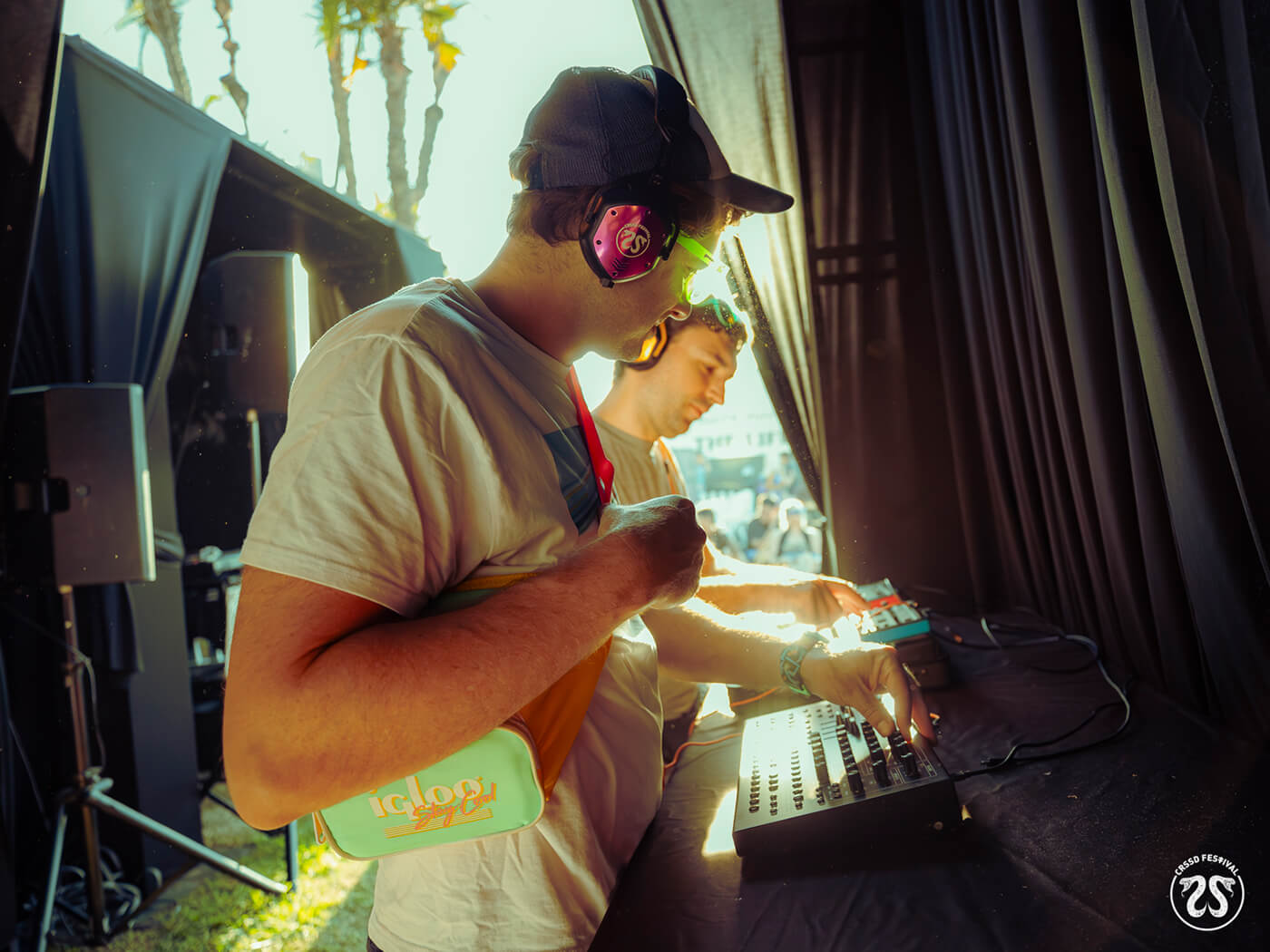
Beyond Roland, CRSSD also partnered with Chapter One Records, a boutique record store in Los Angeles. The team brought several crate full of vinyl and a pair of listening stations, in addition to hosting all-vinyl DJ sets from selectors such as Dylan Payne.
According to Anthony, this year over 1,000 people visited The Lab over the two days, due in part to its new location within the festival grounds.
In past editions of CRSSD, The Lab was tucked in the corner near the artists’ area. This year it was slap bang in the middle of the festival. Chairs and couches were set up so, whether you were eager to try the tech or looking to take a creative break before getting back to dancing, The Lab was thrumming with activity day and night.
And it’s not just attendees who take advantage of the lab either. Numerous artists stop by to conduct live demonstrations. This year, piano house maven LP Giobbi stopped by after her uplifting main stage set.
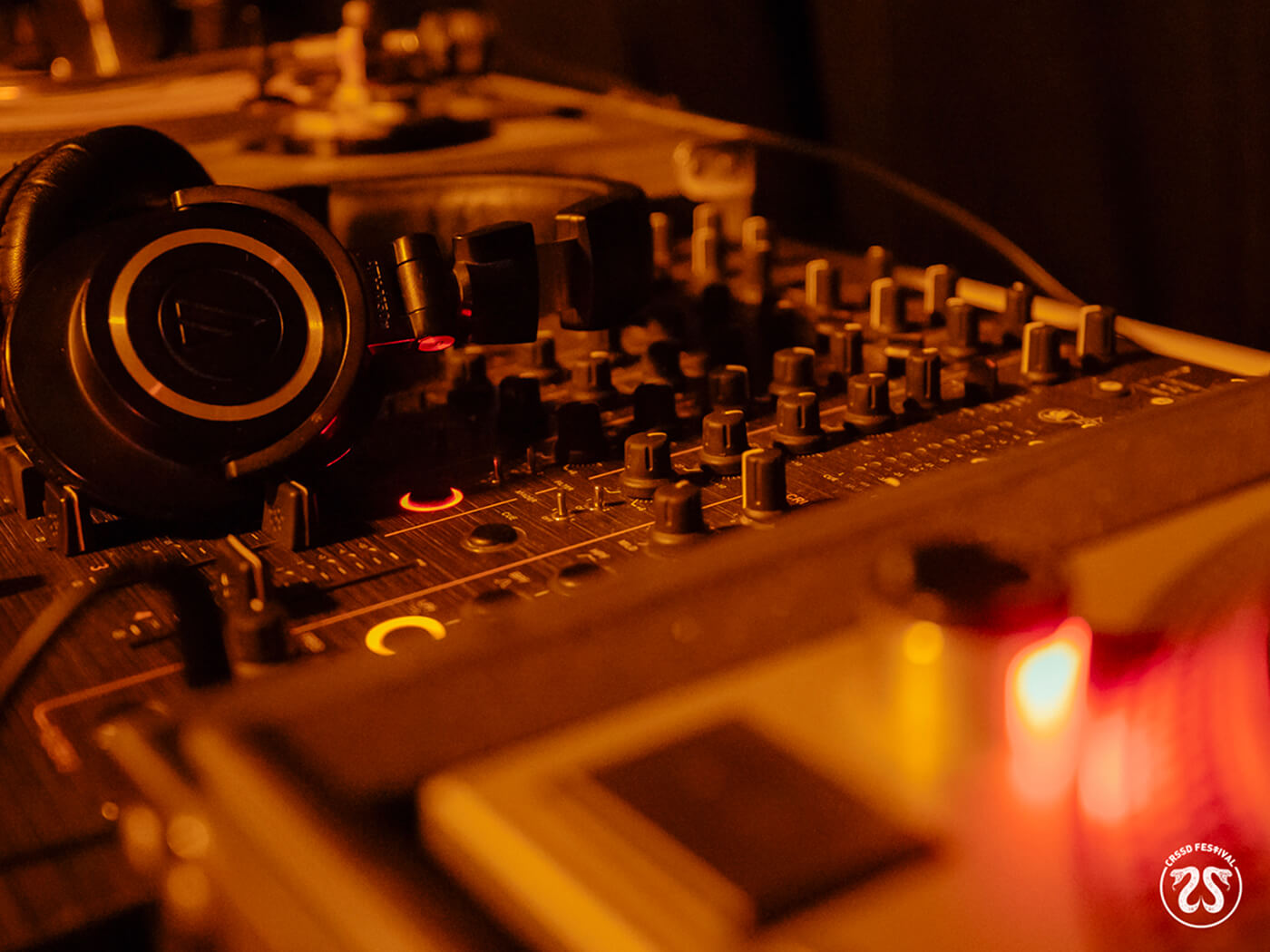
Artists also come to The Lab to enjoy the same kind of hands-on experience as the attendees, as was the case with the ascending alternative electronic artist Mary Droppinz, real name Alyssa Johnson.
Johnson wasn’t even booked to play at CRSSD this year, but she went to the festival to support her friends and submerge in the culture. Like many, she couldn’t pass up the opportunity to check out The Lab while she was there.
“From my experience, 90 per cent of the people at a festival want to, in some capacity, express themselves with music,” Johnson says. “To have a lab set up where you can test gear out, talk to actual industry professionals is really cool. Who’s more confident to have a moment and chat when you’re vibrating high at a festival?”
In addition to being an artist, Johnson has extensive experience in both the educational and commercial sides of music.
On the education front, she is a frequent tutor for LP Giobbi’s FEMME HOUSE, teaching courses across DJing and production (she and Giobbi are currently curating a course on etiquette for back-to-back DJing).
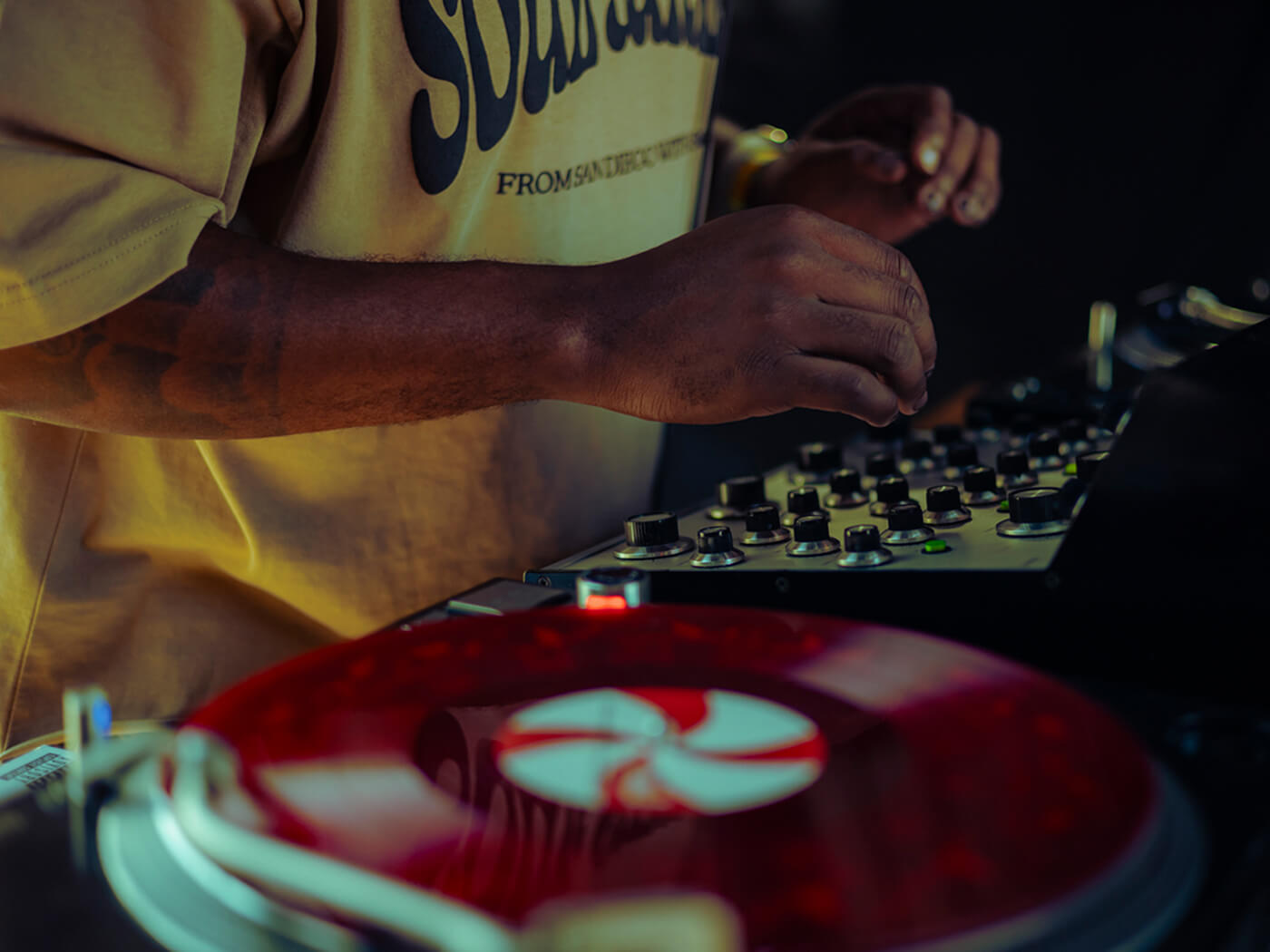
Her commercial experience surrounds another celebrated music tech company, Native Instruments. There, she was a user engagement and education manager for almost three years, running activations similar to the CRSSD Lab at other trade shows, including NAMM.
“Having that access at a festival is really cool because not everyone can get tickets to NAMM. Not everybody has access to try out gear. I do realise how hard it is to get access to education like that,” Johnson says.
While she was at The Lab, Johnson was making beats on the equipment and showed her friend and fellow artist Juliet Mendoza (who performed at this edition of CRSSD) how to use the Roland TR-8S. But more than The Lab being a creative space, it’s also an opportunity to build connections in the industry.
Prior to her visit to CRSSD, Johnson was working with Roland’s editorial platform to publish an article, and so she had been in the same virtual sphere as Anthony, whom she met thanks to CRSSD’s The Lab.
“It was cool to meet her in person,” says Anthony. “Artists usually come over with their entourage. Sometimes that entourage includes producers and PR and media and friends and other aspiring artists under their camp.”
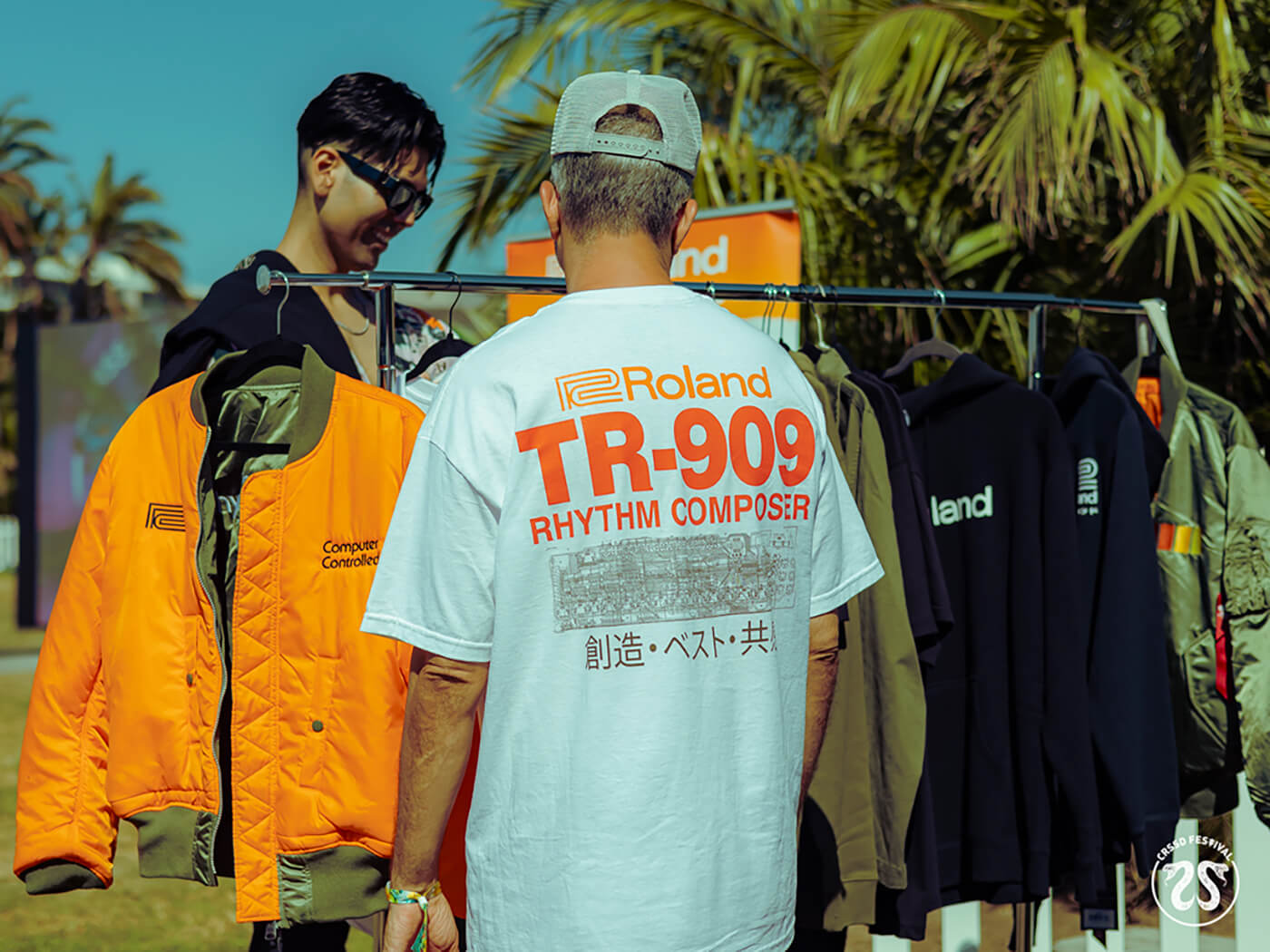
So for aspiring artists who may be dipping their toe into the professional side for the first time, The Lab presents an opportunity to expand their network immediately – which at least one person did with Johnson.
“I met a girl [at the Chapter One Records booth] who also liked to spin breaks so we were geeking out over some of the wax over there,” says Johnson. “She was just checking it out, then she came pretty much everywhere I was going. We had a mutual friend and we basically went around the whole festival together after.”
Similar to the Roland side, Chapter One Records curated their addition to the CRSSD Lab in such a way that anyone, whether they were already avid collectors of vinyl or had never once placed a record on a turntable, could come and appreciate what was there to offer.
Eddie Vela launched the shop in late 2019, just before the pandemic. Vela is an established figure in the Los Angeles underground dance music community, throwing events under prominent brands such as Dialogue and You Know What. Stemming from this association with events, Vela has curated pop-up shops at various different parties.
“Every pop-up is curated for that crowd. Depending on the music genre and type of people we expect to run into our shop, that’s what inventory we bring,” says Vela. “[For CRSSD] we’ll buy a lot of main-stage artists who are performing. They’re big on big-stage techno. We had a few Charlotte De Witte records and Amelie Lens [records].”
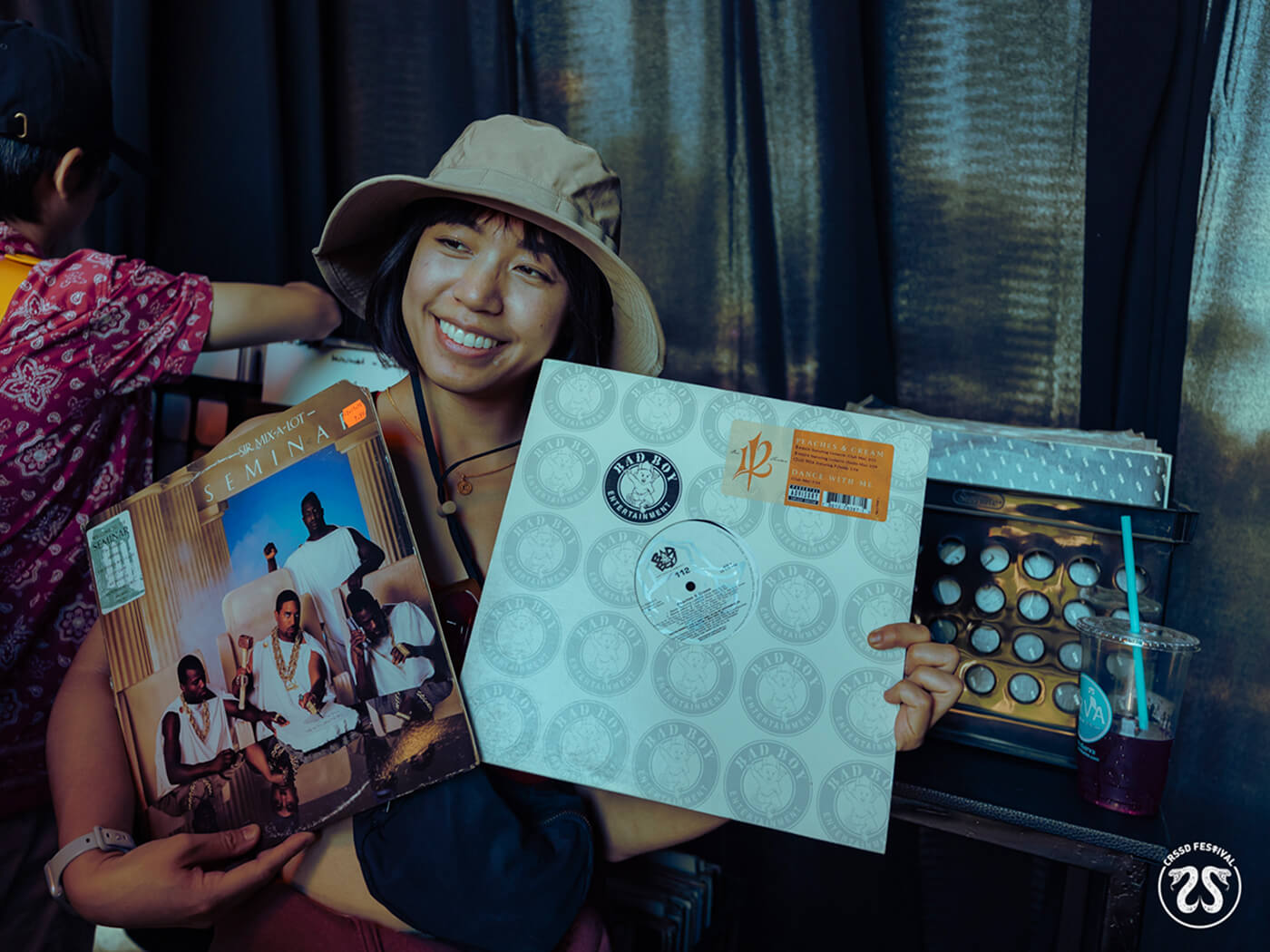
So while fans may come to The Lab to impulse buy the new album from the artist they just saw perform, Vela curates an experience that is authentic to the spirit of underground record shops with premier technology.
The listening stations at the booth featured Technics SL-1200 MK2s, and the DJs were spinning on a setup that included a Varia Instruments RDM40 rotary mixer and two Technics SL-1210 M5Gs.
“The record shops that are more underground are more keen on an experience,” says Vela. “It’s all about hearing new music and listening and touching and feeling and getting that experience of vinyl, and that’s what we wanted to bring to CRSSD.”
For Chapter One, CRSSD remains the biggest event where they have ever set up a pop-up shop. One reason many more commercial record stores don’t offer that same hands-on experience is that vinyl are inherently fragile. The more people handling them, the more likely they are to get damaged.
But after three pop-ups at the CRSSD Lab, Vela has seen that the crowd and environmental CRSSD find a balance where there is significant interest, but still respect for the inventory.
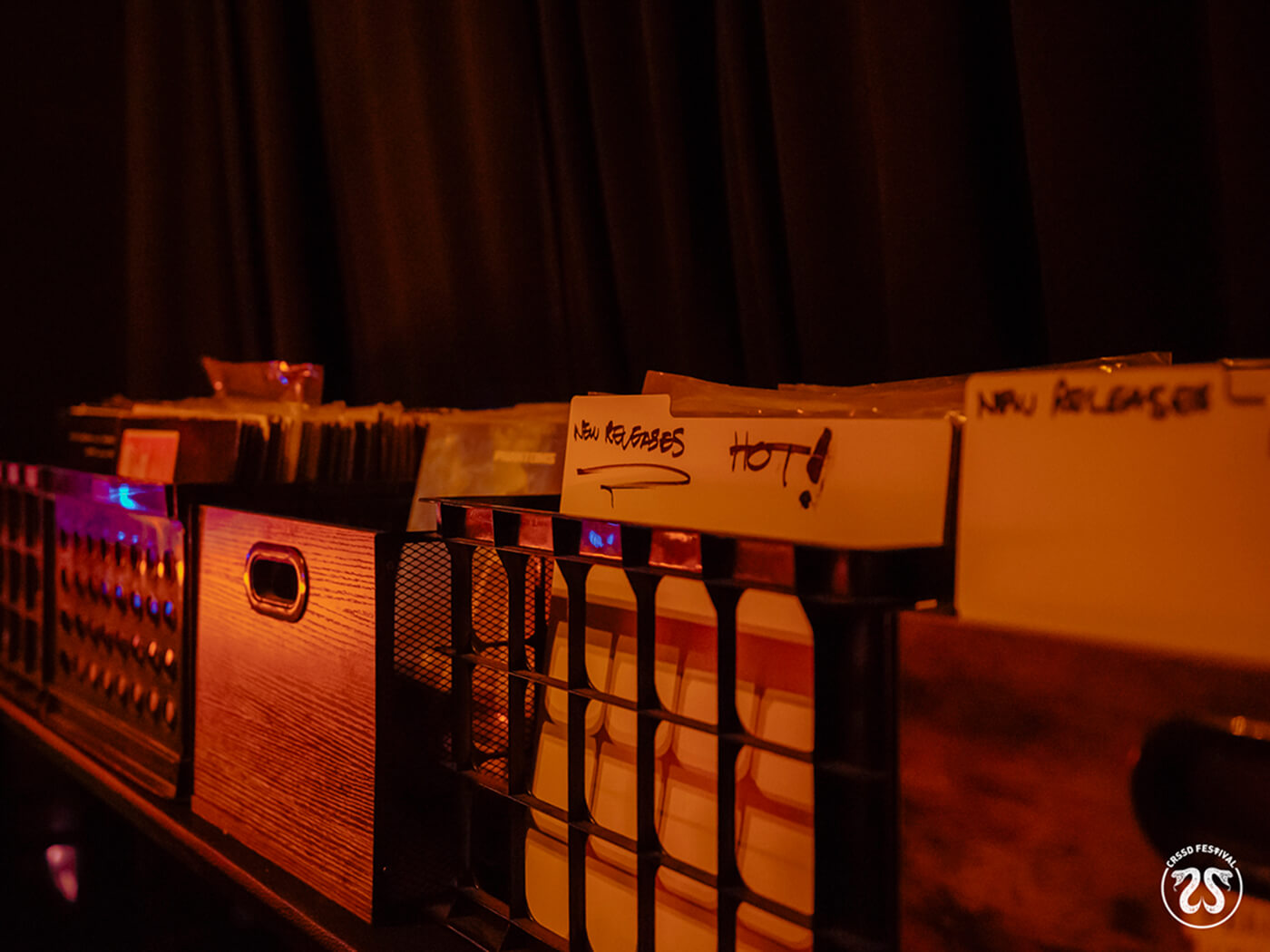
“At a bigger festival, the experience can get lost with so much going on. At CRSSD there’s just the right amount of side activities and vendors,” says Vela. “Even though CRSSD is still a big festival there is still a really good vibe of intimacy.”
“The music heads come and dig, but over the past three years at CRSSD, I’ve noticed there are more younger kids who haven’t been exposed to the artistry of turntablism, or even seen records and turntables up close,” says Dacia Blass, a partner in running Chapter One.
“We’re happy to be a part of someone’s first experience of musical growth, and I think that happens a lot at CRSSD,” says Vela.
As Anthony describes it, the attendees who stopped by the CRSSD Lab were having their “A-ha” moments – learning that some of the music they just spent their day dancing to was created using the machines that were there, ready to be used.
The moment when an attendee decides to become an artist is also an “A-ha” moment. All it takes is one of those moments to start a journey that can lead to world-shifting music.